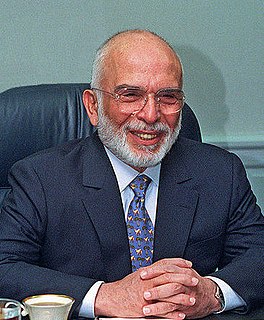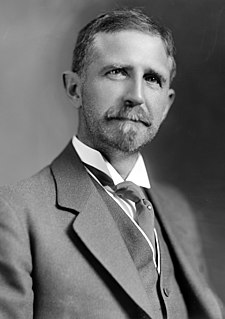A Quote by T. S. Eliot
We are being made aware that the organization of society on the principle of private profit, as well as public destruction, is leading both to the deformation of humanity by unregulated industrialism, and to the exhaustion of natural resources, and that a good deal of our material progress is a progress for which succeeding generations may have to pay dearly.
Related Quotes
The cost of our success is the exhaustion of natural resources, leading to energy crises, climate change, pollution, and the destruction of our habitat. If you exhaust natural resources, there will be nothing left for your children. If we continue in the same direction, humankind is headed for some frightful ordeals, if not extinction.
Capitalism as a social order and as a creed is the expression of the belief in economic progress as leading toward the freedom and equality of the individual in a free and open society. Marxism expects this society to result from the abolition of private profit. Capitalism expects the free and equal society to result from the enthronement of private profit as supreme ruler of social behavior.
Our being edified at conference depends on us. It becomes necessary that we prepare our hearts to receive and profit by the suggestions that may be made by the speakers during the progress of the conference, which may be prompted by the Spirit of the Lord. I have thought, and still think, that our being edified does not so much depend upon the speaker as upon ourselves.
We recognize that our progress as a species does not have to be defined in terms of wealth or material and physical growth any more than our progress as individuals has to be defined in terms of physical growth. Physical growth of the body reaches a limit, but the character and the soul of the individual continues to grow, or at least has a chance to continue, often to our last breath. It is simple minded to define our well being in material terms, when that well-being has an aesthetic dimension, and intellectual dimension, a moral dimension.
The dilemma of our age is the combination of unprecedented material progress and systematic spiritual decline. The decline in public and private morality can be witnessed in the marketplace as well as the forums of international diplomacy. In the past, a man's honor and reputation were his most valuable assets. Business agreements were made with a handshake. Today one might be well advised to check the "bottom line" and read the "small print."
It is important that spiritual advancement must keep pace with material advancement. When this comes to be realized man's journey toward higher and more lasting values will show more marked progress while the evil in him recedes into the background. Knowing that material and spiritual progress are essential to man, we must ceaselessly work for the equal attainment of both. Only then shall we be able to acquire that absolute inner calm so necessary to our well-being.
In fast-moving, progress-conscious America, the consumer expects to be dizzied by progress. If he could completely understand advertising jargon he would be badly disappointed. The half-intelligibility which we expect, or even hope, to find in the latest product language personally reassures each of us that progress is being made: that the pace exceeds our ability to follow.
Material objects give rise to physical happiness, while spiritual development gives rise to mental happiness. Since we experience both physical and mental happiness, we need both material and spiritual development. This is why, for our own good and that of society we need to balance material progress with inner development.
The remediableness criterion is an effort to deal symmetrically with real world institutions, both public and private, warts and all. The criterion is this: an extant mode of organization for which no superior feasible form of organization can be described and implemented with expected net gains is presumed to be efficient.
Hopefully, we will become a stronger democratic society and avoid falling into xenophobia. Hopefully, we build good relationships with our neighboring countries and, rather than acting for profit for the current generation, acting in a way that will ensure we leave natural resources for future generations.
Does anyone believe for one moment that the progress we have made would have been possible under bureaucratic control of any government. This country was founded upon the principle of the regulation of private effort, of making rules for the game, and under that system alone can we look for the same success in the future which has been ours in the past. Our position today is the direct result of the free play among our people of private competitive effort.
For such will be our ruin if you, in the immensity of your public abstractions, forget the private figure, or if we in the intensity of our private emotions forget the public world. Both houses will be ruined, the public and the private, the material and the spiritual, for they are inseparably connected.
Private property in the instruments of production is an institutional device both for dispersing power and for securing effective organization of production. The only simple property system is that of a slave society with a single slave owner - which, significantly, is the limiting case of despotism and of monopoly. Departure from such a system is a fair measure of human progress.
It is our responsibility as scientists, knowing the great progress which comes from a satisfactory philosophy of ignorance, the great progress which is the fruit of freedom of thought, to proclaim the value of this freedom; to teach how doubt is not to be feared but welcomed and discussed; and to demand this freedom as our duty to all coming generations.







































